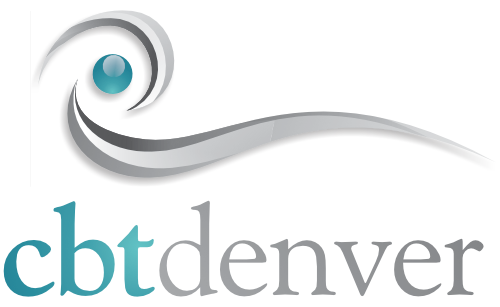Eating Disorders
Eating Disorder refers to a category of specific disorders that include dysfunctional eating patterns characterized by restriction, over-eating, and/or use of compensatory behaviors (e.g., purging, exercise). Here at CBT Denver, we recognize that eating disorders consist of a complex constellation of psychological, emotional, and physical challenges. While our practice is not equipped to support individuals who are not medically stable, we do offer support and intervention for disordered eating as it relates to mood and anxiety. We also often see clients who, while stable, may benefit from ongoing skills and support to stay healthy.
Eating Disorders have serious physical, emotional, and social consequences. Individuals with eating disorders may experience malnutrition, weight changes, digestive problems, electrolyte imbalances, and other physical health complications. Additionally, eating disorders can have a major impact on emotional well-being, leading to feelings of shame, guilt, and low self-esteem.
Two types of eating disorders that we see most frequently at CBTDenver are Bulimia and Binge-Eating Disorder. In addition, we understand that body image, self-esteem, and self-worth can often be linked to disordered eating whether one is restricting food intake or over/under eating in times of stress.
Binge-Eating Disorder (BED)
Binge-Eating Disorder (BED) is characterized by binge eating without purging behavior. Other features of BED include lack of control over eating and significant distress and/or guilt following overeating.
Bulimia Nervosa (BN)
Bulimia Nervosa (BN) is characterized by a pattern of over-eating (binge episode) or perceived over-eating (which is called a subjective binge) followed by the use of a compensatory behavior (e.g., purging, exercise, laxatives).
Negative Body Image
Negative body image is a fundamental component of any eating disorder. Negative thoughts and feelings about one's body can be caused by societal factors, like diet culture and unrealistic expectations for appearance, or by messages a person has received (directly or indirectly) from other people in their life.
Treatment of Eating Disorders
A multi-disciplinary approach is the gold standard of treatment for eating disorders. Multi-disciplinary teams typically consist of an individual therapist, a nutritionist/dietician, and a medical provider (i.e., a primary care physician or a nurse practitioner). The team may also include a psychiatric provider and a family therapist or couples therapist.
At CBT Denver, we represent the individual therapy component of the treatment team. Individual therapy is designed to help the individual understand the function of their eating disorder, which is most often used to avoid uncomfortable internal experiences. We help the individual gain awareness of urges to use eating disorder behaviors, the associated triggers, and alternatives for coping in the moment. The goal is to decrease the frequency and severity of eating disorder behaviors, develop effective coping skills to use instead, and to increase a person's confidence in their ability to tolerate uncomfortable internal experiences.
Body Positivity vs. Body Neutrality
Body positivity is a helpful concept for some people struggling with body image distress, but can also feel invalidating if a person is told that their painful thoughts and emotions about their body are "wrong" or "bad." Body acceptance or body neutrality is an alternative to body positivity in which a person's thoughts and emotions about their body are accepted without judgment and the person is encouraged to extend this nonjudgmental orientation toward their body as a whole. In body neutrality, we strive to view our body in terms of its function rather than its appearance, and to envision our self-worth and identity as much more than just our physical body.
For more information on treatment of eating disorders at CBT Denver, please contact us.


